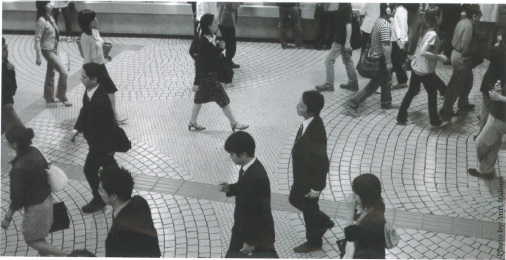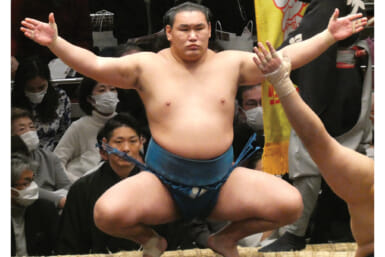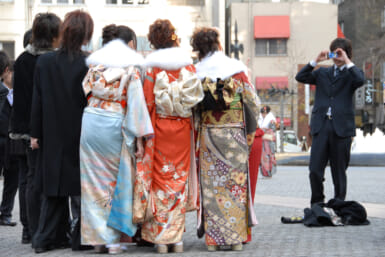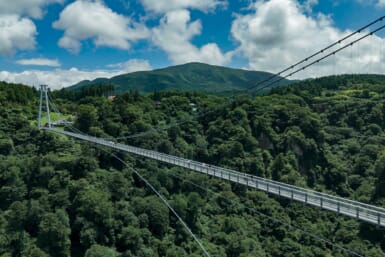Who goes first in a precarious job market?
For temporary worker dispatch agencies, business has been booming. Secure, long-term permanent positions are fewer and far between, while an increasing number of employees find themselves in precarious positions. Though some believe this trend offers flexibility and opportunity, others feel job security is a necessity worth fighting for.
N.E.E.T. freaks finding flexibility
Yasuyuki Nambu, the C.E.O. of Pasona, one of the largest job agencies in Japan, firmly believes in the flexibility and opportunity a temporary-employment-friendly work force can provide. The Pasona ‘Power of Youth: Work Fair’ in November of last year included lectures with titles like ‘Don’t get Trapped by Stereotypes’ and ‘Advice on Changing Jobs.’ Japan’s prolonged recession and the breakdown of the lifetime employment model means the secure workforce they were brought up to enter no longer exists. The N.E.E.T.s (Not in Education, Employment or Training) and fureeta (non-career-focused temporary workers) phenomenon may be the logical reaction to this workforce environment. Daunted by and uninterested in the prospect of meager opportunities available in a traditional lifestyle employment position, what Pasona and other temporary employment agencies offer is very inviting — part-time work in a non-committal environment.
Most temporary employment agencies are very committed to attracting the demographic that traditionally has trouble finding satisfactory work. Human is a company specializing in training and certification, as well as temporary work placement. One television commercial for their sub-company Human Academy features super model Shiho coming in and out of changing rooms dressed in different work uniforms. The idea is definitely attractive — try a new career like you’re trying on a new outfit! — and the target is clearly young women. Mobaito is another agency targeting young people. They use the N.E.E.T. and fureeta phenomenon to their advantage with an ad campaign featuring the slogan “Work only when you want to work!”
Losing security
However, any flexibility and fun these workers may gain, they lose in security, something the Labor Ministry (rou-doushou) predicted over 20 years ago. The Labor Ministry initially saw temporary employment as a threat to job security, and it wasn’t until 1986 that the first Temporary Worker’s law (rodosha hakenhou) was implemented — initially as a means to counter the widespread practice of dispatching temporary workers illegally.
Today, while many feel the trend towards a more temporary employment workforce has given women and young people easier access to the job market, others feel it puts workers at a disadvantage. “Our value as workers has gone down,” said a speaker at the Mayday for Freedom and Survival 2006 rally on April 30. University of Iwate Associate Professor, and Editor of the bi-monthly magazine Impaction, Keiko Kaizuma agrees. “(Because) most women who are part-time workers are married… the general consensus is that women just work for fun, and management and society as a whole don’t see what the problem is when women complain of unequal treatment,” she said, adding that in many Japanese companies, though work hours and responsibility are the same, more often then not women are part-time while men are full-time.
Many people feel that this growing trend towards temporary and insecure work is the biggest issue in the labor market today. Tadayasu Irie, a sociologist and labor activist history specialist who also spoke at the rally stated that, “Through privatization and de-regularization the rights of workers are being sacrificed in favor of profit.” Irie and many others felt strongly enough to march on the streets during May Day demonstrations throughout Japan. Though for the most part peaceful, there were a number of arrests and there was a complete blank in media coverage.
Unions face challenges
Indeed, lack of exposure and arrests are but one of the many hurdles faced by union workers and workers’ rights activists. The difficulty in collective bargaining is a constant struggle. One man who knows this issue firsthand is Bob Tench, the president of the Shinjuku NOVA (an English conversation school) branch of the National Union of General Workers, Tokyo Nambu. He is in the middle of a long-standing struggle against NOVA for failing to negotiate in good faith.
“Initially we (the union) submitted to NOVA a list of demands for collective bargaining,” Tench told Weekender. “This list included very basic demands; including one for nicer chairs. We only had folding chairs, and there was one particular teacher who developed serious back problems who had to eventually quit because of it. We got a complete blanket ‘no’ to all our demands, and that’s not negotiating in good faith.”
Since entering this struggle, Tench has been subject to “outright bullying tactics,” including a sudden drop in performance reviews. Other union members, including Sharmeen D. Jones, have also been subject to similar attacks. “They (the management staff) will have me do obviously demeaning tasks, like sharpen pencils all day,” explained Jones, “and when I complain they will then use that complaint against me. When union members are under attack, it makes it a challenge to keep up the struggle.”
Two employees of unions I spoke to believe inconsistency and disloyalty among members is a huge challenge. “People join when they have a problem, then quit when it’s solved,” said Makoto Abe of the Tokyo Kan-rishoku Union. Louis Carlet, also of the National Union of General Workers Tokyo Nambu, echoed the sentiment, saying “people sometimes mistake us for being a public service, when that’s not really what we do.”
Foreign workers feel the pinch
The most insecure demographic in Japan may be the foreign workers. Carlet handles all foreign cases at the National Union of General Workers. He explained that foreign cases are usually delegated by general nationality between three major unions. His union focuses on Western and European, while Zentoitsu focuses on African and Central Asian and Kanagawa City Union focuses on Spanish and Portugese-speaking nationals. Carlet is quick to point out that the issues faced by non-Western foreigners are far more severe. Many non-Western workers face dangerous and harsh conditions in factories. When the cases are reviewed for some union members, incredibly low wages for long hours are often uncovered. Moreover, some individuals who have lived and worked for years in Japan may suddenly not have their visa renewed. “If s very hard for these people to suddenly leave the country when their whole life is here,” explains Carlet.
Nonetheless, the issues faced by Western foreign workers are often less then ideal, and Carlet has seen job security go down in recent years. “The honeymoon is over,” he says, and there is increasing friction between Japanese and foreign workers, as seen by the advent of such practices as mem tsuhou or email notification, a service in which you can turn in undocumented workers anonymously. “Our biggest issue is job security,” explains Carlet. “Over 90 percent of foreigners are ‘perma-temp’ employees, which is an abuse of the temporary employment system.” This means workers are on yearly renewable contracts for non-temporary jobs. Employers can therefore decide not to renew a contract at any point, in effect firing a worker. “We feel that it’s unacceptable to have a temporary contract for non-temporary work. The only conceivable purpose is to give more control to the employers,” he says.
According to Carlet, this was not standard practice during the bubble era, just another indicator of the decreasing job security. “Over 50 percent of female employees are also on ‘perma-temp,’ with 35 percent of Japanese workers overall,” he says. Quite a staggering number, and a long way to go for an ideal work environment.
Paul Scheible sits in on a union’s struggle.
Fighting for your rights isn’t easy. Just ask Bob Tench, whose case against NOVA is now entering its third year. Tench, who has taught for NOVA for more than ten years is the president of the Shinjuku NOVA branch of the National Union of General Workers Tokyo Nambu. Their case against NOVA centers on their refusal to negotiate terms in good faith, and both sides have been appearing in front of the Tokyo Regional Labor Board for some time over this issue.
Recently, I had the chance to sit in with the Nambu side on one such Labor Board meeting. We started out by meeting in Nambu’s waiting room. After the various witnesses, translators, and lawyers filtered in, we were ushered into the boardroom. There were three panelists from the labor board hearing the case — one with a more business-leaning background, one leaning towards the unions, and a neutral judge. The sides come in one at a time — when the Nambu side went in, the NOVA side had already been heard and left. This back-and-forth process can go for several rounds on a day, I was told. Luckily, today was a short one. After waiting a while longer, we were called back in. Both sides were present this time, however, and there was little discussion beyond setting the date for the next such meeting.
The case is still in the early chousa, or review stage. It continues on like this for some time, as Nambu’s case has, with the sides going back and forth, collecting evidence, presenting documents, affidavits and gathering information. Soon, the case will move into the shinmon, or hearing stage where the real case begins. This will be the stage where the action starts happening, so to speak. Witnesses will be examined, the two sides will be able to question each other, and the arguments of the case will progress.
In the meantime, Tench, who has been striking on and off for approximately two years, will have to wait a little longer. He and his allies have been fighting for some time, and while the end may not be in sight, they’re still proud of the progress they’ve made.









